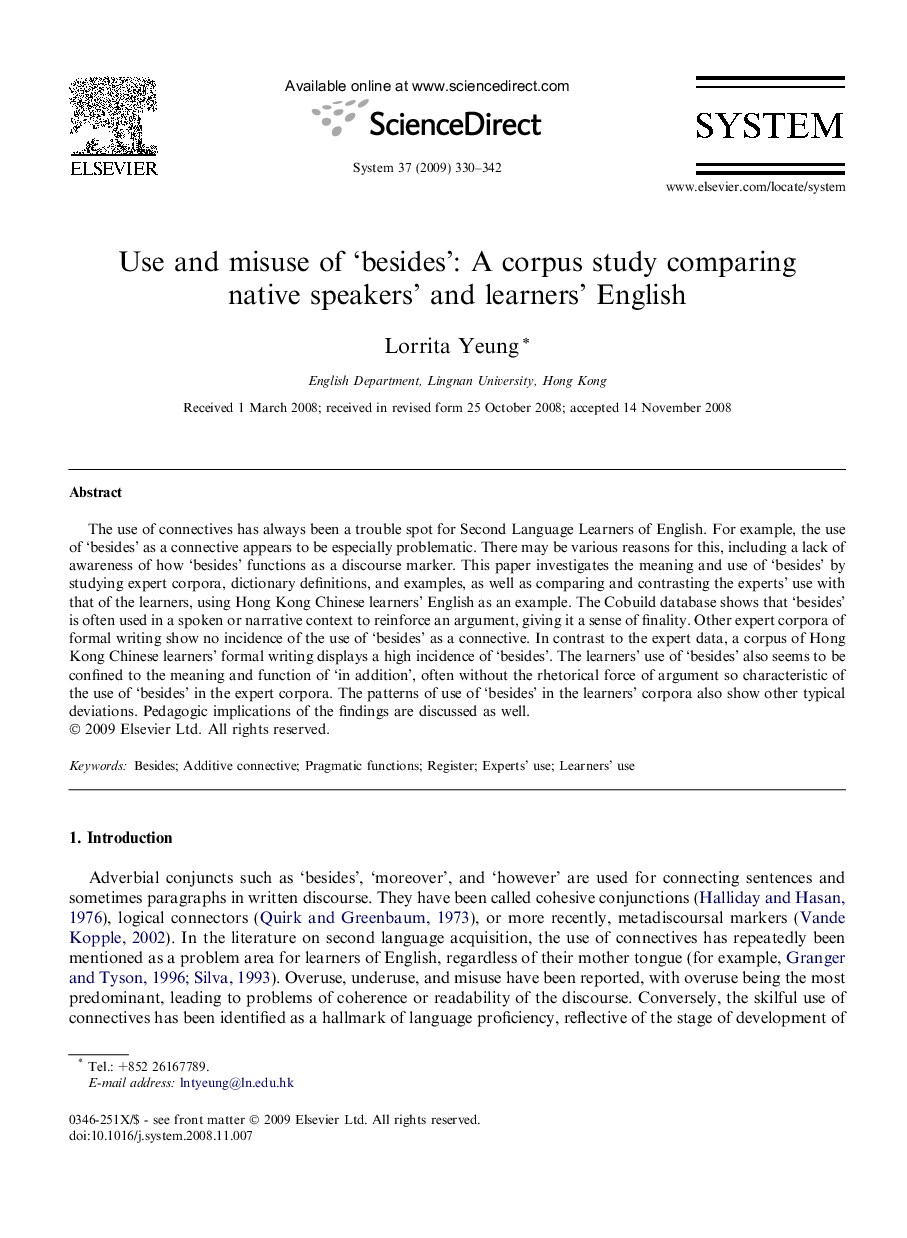| Article ID | Journal | Published Year | Pages | File Type |
|---|---|---|---|---|
| 373748 | System | 2009 | 13 Pages |
The use of connectives has always been a trouble spot for Second Language Learners of English. For example, the use of ‘besides’ as a connective appears to be especially problematic. There may be various reasons for this, including a lack of awareness of how ‘besides’ functions as a discourse marker. This paper investigates the meaning and use of ‘besides’ by studying expert corpora, dictionary definitions, and examples, as well as comparing and contrasting the experts’ use with that of the learners, using Hong Kong Chinese learners’ English as an example. The Cobuild database shows that ‘besides’ is often used in a spoken or narrative context to reinforce an argument, giving it a sense of finality. Other expert corpora of formal writing show no incidence of the use of ‘besides’ as a connective. In contrast to the expert data, a corpus of Hong Kong Chinese learners’ formal writing displays a high incidence of ‘besides’. The learners’ use of ‘besides’ also seems to be confined to the meaning and function of ‘in addition’, often without the rhetorical force of argument so characteristic of the use of ‘besides’ in the expert corpora. The patterns of use of ‘besides’ in the learners’ corpora also show other typical deviations. Pedagogic implications of the findings are discussed as well.
